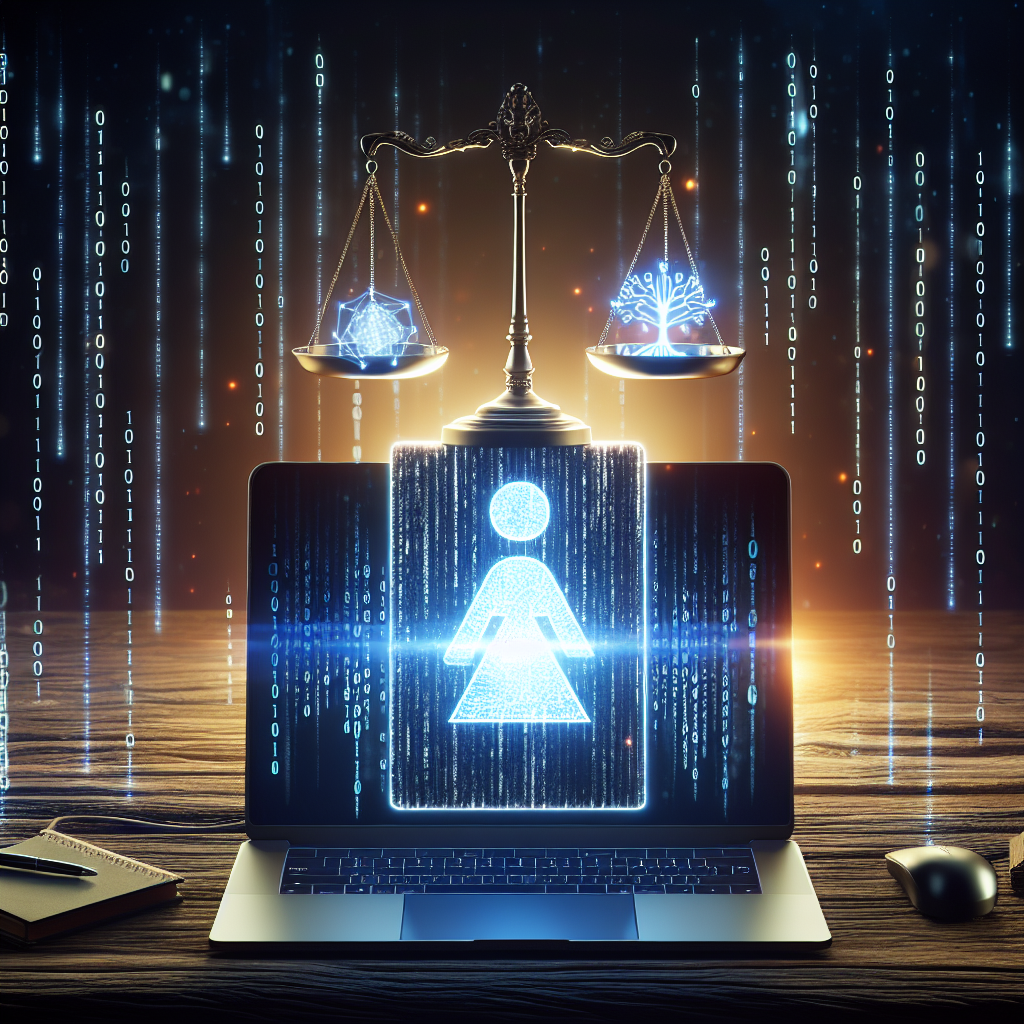Artificial Intelligence (AI) software is becoming increasingly prevalent in various aspects of our lives, from personal assistants like Siri and Alexa to autonomous vehicles and medical diagnostics. While AI has the potential to greatly improve efficiency and accuracy in decision-making processes, there are also ethical considerations that must be taken into account when implementing AI software.
One of the main ethical concerns surrounding AI software in decision-making is the issue of bias. AI algorithms are only as good as the data they are trained on, and if that data is biased, the AI system will also be biased. This can lead to discriminatory outcomes, such as in the case of a recruitment AI that favors candidates of a certain race or gender. It is crucial for developers to be aware of this potential bias and take steps to mitigate it, such as using diverse training data and regularly testing the system for bias.
Another ethical consideration is the transparency of AI decision-making processes. Unlike humans, AI systems operate based on complex algorithms that are often not easily understood by the average person. This lack of transparency can make it difficult to hold AI systems accountable for their decisions, especially in cases where those decisions have negative consequences. It is important for developers to ensure that AI systems are transparent and explainable, so that users can understand how decisions are being made and challenge them if necessary.
Privacy is another key ethical concern when it comes to AI software in decision-making. AI systems often require access to large amounts of personal data in order to make accurate decisions, such as in the case of personalized marketing or medical diagnostics. It is important for developers to prioritize user privacy and data security when designing AI systems, and to comply with relevant regulations such as the General Data Protection Regulation (GDPR) in the European Union.
One of the most pressing ethical dilemmas surrounding AI software in decision-making is the issue of accountability. Who is responsible when an AI system makes a mistake or causes harm? Is it the developer, the user, or the AI system itself? This question becomes even more complex in cases where AI systems are autonomous and make decisions without human intervention. It is crucial for developers to establish clear lines of accountability and responsibility when designing AI systems, so that there is a clear process for addressing issues and holding individuals or organizations accountable for any negative outcomes.
In addition to these ethical considerations, there are also broader societal implications of AI software in decision-making. For example, the widespread adoption of AI systems could lead to job displacement and economic inequality, as AI systems are able to perform tasks more efficiently and accurately than humans in many cases. It is important for policymakers to consider these implications and take steps to mitigate any negative effects of AI adoption, such as by investing in retraining programs for displaced workers or implementing regulations to ensure fair competition in the AI market.
Overall, the ethics of AI software in decision-making are complex and multifaceted, requiring careful consideration of issues such as bias, transparency, privacy, accountability, and societal impact. By addressing these ethical considerations proactively, developers can ensure that AI systems are used responsibly and ethically to benefit society as a whole.
FAQs:
Q: What steps can developers take to mitigate bias in AI systems?
A: Developers can mitigate bias in AI systems by using diverse training data, regularly testing the system for bias, and implementing bias detection and correction algorithms.
Q: How can AI decision-making processes be made more transparent and explainable?
A: Developers can make AI decision-making processes more transparent and explainable by using interpretable algorithms, providing explanations for decisions, and allowing users to inspect the decision-making process.
Q: How can user privacy be protected when using AI systems?
A: User privacy can be protected when using AI systems by prioritizing data security, complying with relevant regulations such as GDPR, and implementing privacy-preserving techniques such as data anonymization.
Q: Who is responsible when an AI system makes a mistake or causes harm?
A: The responsibility for mistakes or harm caused by an AI system can be shared among the developer, the user, and the AI system itself, depending on the circumstances. It is important for developers to establish clear lines of accountability and responsibility to address these issues.

